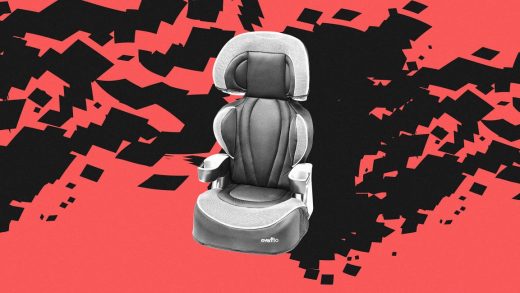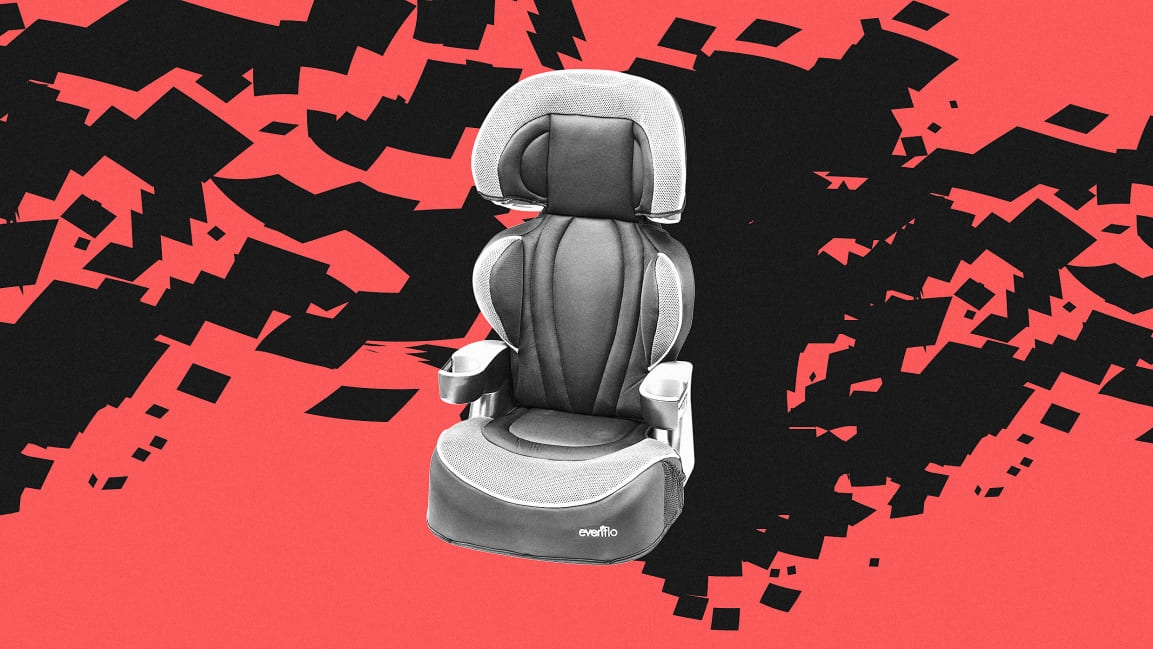Design fail: Evenflo allegedly sold unsafe car booster seats
Evenflo, a baby product company behind the top-selling Big Kid booster seat widely available at retailers including Walmart, Target, and Amazon, sold a dangerous design despite knowing it was flawed, according to a new report from ProPublica. A leaked internal video of side-impact tests of the Big Kid seat shows that children in the seat could be severely injured or killed in the event of a crash. Evenflo has settled multiple lawsuits with the families of children injured in accidents while using the seat.
Evenflo isn’t the only car seat manufacturer to face lawsuits for allegedly unsafe products. But as ProPublica points out, Evenflo exploited a regulatory loophole to push a design it knew was unsafe for certain children. It’s the latest example of how bad design, lax regulations, and corporate greed in the United States can endanger people’s lives.
Booster seats are products parents buy for their child when she outgrows a forward-facing car seat. They typically use a car’s existing seat belt to restrain the child, compared with the five-point harness of a traditional car seat. The American Academy of Pediatrics recommends that children weighing less than 40 pounds use a seat with an internal harness, because it evenly distributes the forces of a crash over their small bodies and decreases their chances of being ejected from a vehicle. Canada has banned the sale of booster seats to children under 40 pounds since 1987.
In 2012, a safety engineer at Evenflo emailed top executives recommending that booster seats that use seat belts to hold bodies in place should not be sold to children weighing less than 40 pounds, which would have made the specifications closer to those recommended by the American Academy of Pediatrics, ProPublica reports. Internal records show that a marketing executive refused the recommendation, and when the subject came up again a year later, that same executive, who had been promoted to vice president of product and marketing development, vetoed the recommendation again.
Evenflo described its products as “side impact tested” despite the fact that internal tests showed that a child sitting in one of the company’s seats could be harmed in a crash. The bar was low for testing within the company: The company only gave itself a failing grade if the crash test dummies ended up on the floor, or if the seat broke—anything less severe, including dummies being flung at angles that could injure or kill children, passed the company’s test.
Why were they able to get away with this? In the United States, car seats have to pass a test to ensure they are safe during head-on collisions, but not side-impact collisions. (Because all car seat manufacturers are subject to the same regulation, ProPublica was unable to determine whether similar threats are posed by booster seats from other makers. Graco and Dorel, two Evenflo competitors, are facing lawsuits for marketing their seats to parents of children who may be too small or light to use the product safely.)
The report from ProPublica suggests that the Big Kid seat was rushed to market without proper testing in an effort to prevent competing companies from gaining more market share. Evenflo also ignored the American Academy of Pediatrics’ recommendations that children weighing less than 40 pounds should be protected in a seat with an internal harness. The company’s ad campaigns highlighted the frustration parents could experience when putting their children in seats with a harness, promoting the fact that their booster seat was more convenient to use.
In some cases it appears the company deliberately misled customers: To compete with a seat made by Graco in 2008, Evenflo added plastic wings to its product—marketing documents state that an advantage of this strategy was increased “perceived side protection,” but tests show that the new seat was no better at protecting children than the older model.
Evenflo is not the first company to sell a faulty design in the quest to turn a profit. Ikea has come under fire recently for selling dressers that can tip over and kill children. After several fatalities, the company recalled 29 million dressers from the market and announced plans to release new, more stable dressers, but production has been delayed. Boeing also recalled its 737 Max planes, following several crashes. The airplane manufacturer is now in the process of implementing several design fixes.
We reached out to Evenflo for comment but didn’t hear back by press time.
(8)



